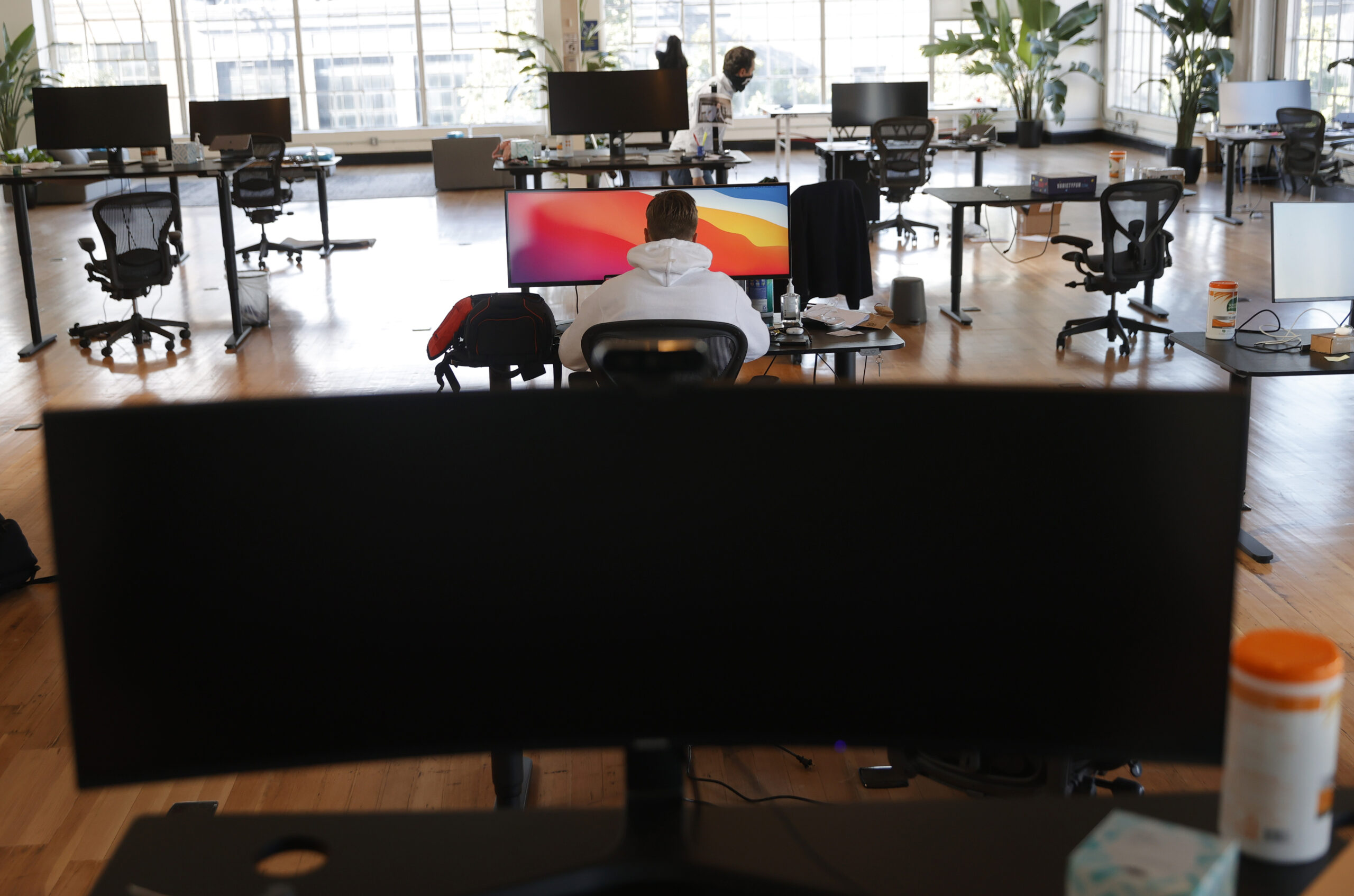San Francisco’s technology startups have mostly powered through the pandemic, raising money at a record rate and hiring aggressively, but the rise of remote work “creates a major risk for the city’s economy,” Ted Egan, the city’s chief economist, told the Board of Supervisors on Tuesday.
“We know this is an issue that’s currently being negotiated by the affected business and their employees, and we don’t quite know where it’s going to land,” Egan said at a hearing focused on tech startups.
Investors poured $8 billion into local firms in August alone, according to Crunchbase, a research firm. That marked a record monthly high, and pushed the year-to-date total of dollars invested in San Francisco startups to more than $40 billion.
Those investments would normally foreshadow a surge in hiring and commercial leasing, noted Egan. But this time could be different: Around 17% of San Francisco-based job listings are specifically designated as remote, and many companies are employing lax work-from-home policies to keep workers happy, said Egan.
“Companies are leery of angering their workforce to stop them from being poached,” he said.
That spells trouble for San Francisco’s tax base. Business taxes, which generated close to $1 billion per year in revenue prior to the pandemic, are levied based in part on the number of employees physically working in San Francisco. Fewer commuters also means fewer customers at the downtown restaurants, bars and retail shops that generate an outsized portion of the city’s sales taxes.
Indeed, employers are shedding downtown office space fast to adjust for remote work. Vacancy rates at San Francisco offices rose to 15.4% in the second quarter, according to brokerage firm Avison Young, while base rents have slipped 4.3% since the beginning of this year.
The silver lining, city officials say, is that falling real estate prices could be helpful for a different class of startups.
“What I would call the opportunity of this pandemic…is to seize this moment to help startups that haven’t been as well capitalized as others, and to take advantage of softer real estate prices right now,” said Kate Sofis, director of the Office of Economic and Workforce Development (OEWD), on Wednesday.
OEWD currently runs a few loan programs for entrepreneurs, focusing on women-led businesses, “emerging” businesses with the potential to generate economic growth, and other specific categories. The city also offers a limited number of tax credits, such as a payroll expense carve-out for biotech companies. A controversial tax exclusion for companies in the mid-Market and Tenderloin districts, dubbed the “Twitter tax break,” expired in 2019.
Sofis said that the city isn’t considering any “significant” new tax credits at this point. But she said there could be other ways of incentivizing tech companies–or those in adjacent sectors like advanced manufacturing–to set up shop in San Francisco.
That could mean tweaking tax structures over time, as well as zoning rules that apply to biotech or manufacturing startups to encourage companies with a brick-and-mortar footprint to expand. Depending on what a company produces, it may not be clear under San Francisco’s current zoning rules whether they could expand in parts of the city zoned for production, distribution and repair (PDR) as opposed to traditional office or industrial zones. Clarifying those rules could help incentivize the growth of firms with some production element, said Sofis.
Sofis also pointed to partnerships between the city and tech employers to encourage local hiring, such as a Microsoft-sponsored program called Technology Education and Literacy in Schools (TEALS) that matches tech employees with students at nine San Francisco public schools to teach computer science skills and build a long-term, local hiring pipeline.
“We have to continue to find a way to talk about tech not as something that is a problem,” said Sofis. “It’s essential to have companies at the table, whether it’s Facebook, LinkedIn or an advanced manufacturing company.”
